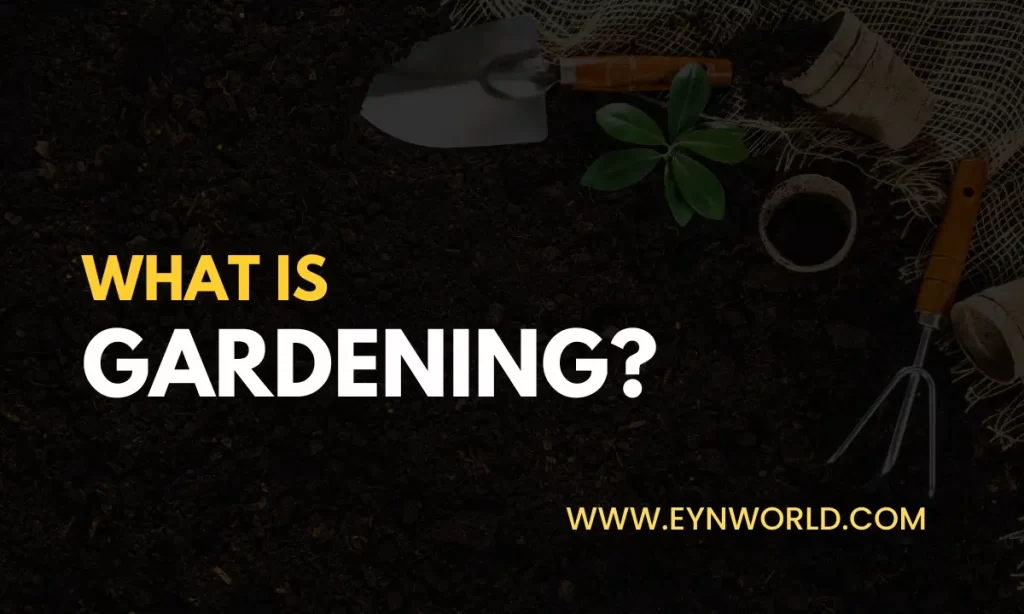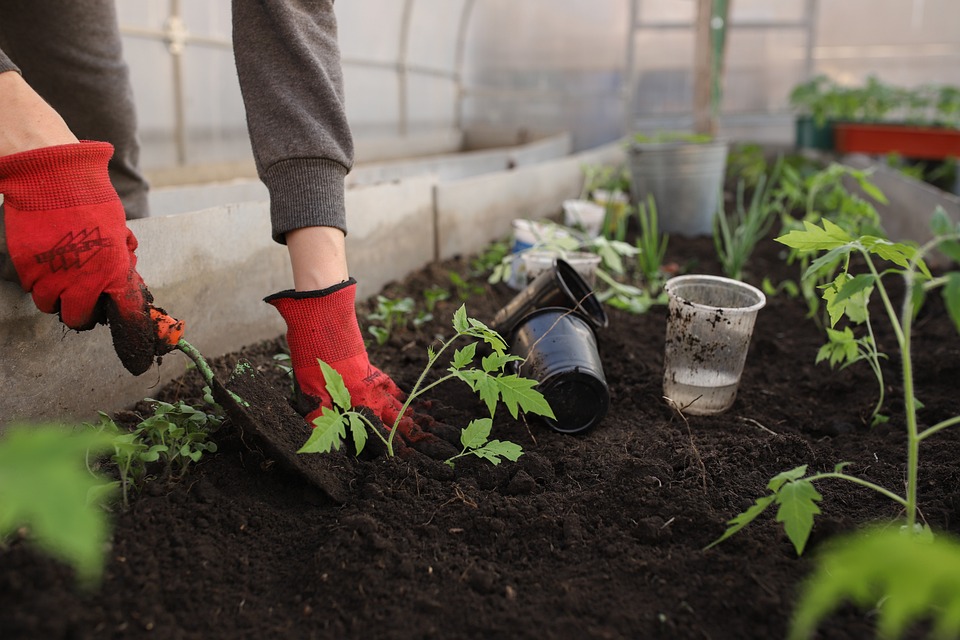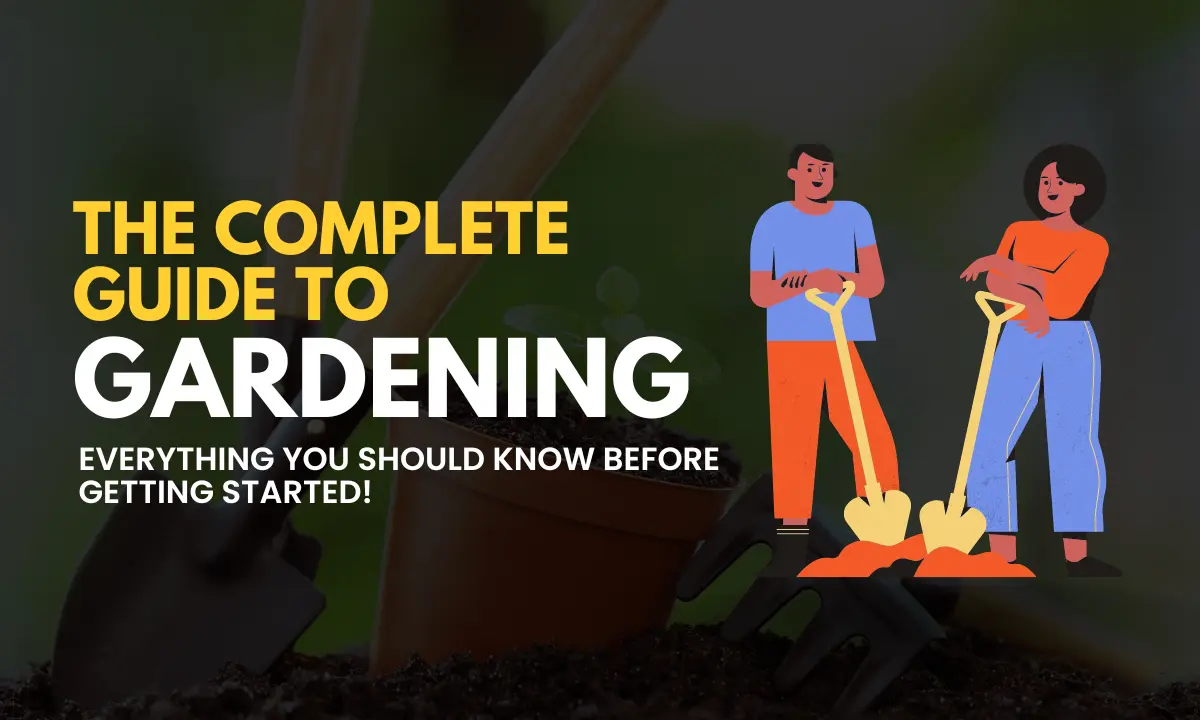Spending time in your backyard is an excellent way to relax if you love the outdoors. Creating a garden is a great way to bring nature into your home and get some exercise at the same time.
Whatever the size of your lawn, there are endless ways to create an amazing garden. Even if you don’t think you have the green thumb to do so, with some research and planning, you can have your own beautiful garden in no time.
Moreover, whether you’re just getting started with gardening or looking for new ideas to expand your existing garden, this guide will help you get the most out of your backyard oasis.
What is Gardening?

Growing plants in soil or organic mulch, usually outside, is known as Gardening. Gardeners plant flowers, vegetables, herbs, and trees in various ways.
The majority of gardeners grow plants in pots that are placed outside, while others may decide to create a garden bed in their backyard.
7 Best Benefits of Gardening
Not only is gardening physically beneficial, but it also improves mental wellness, contributing to mood improvement. Planting flowers and vegetables in your garden is a different level of satisfaction that you get from gardening.
Additionally, watching your plants grow is similar to watching your child mature. Knowing the 7 best advantages of gardening will also keep your motivation high even when your plants are not producing any fruit or flowers.
1. Better Mood
When you are gardening, you are interacting with the world around you. You are engaging with nature and helping it grow. This helps to boost your mood because it gives you purpose and makes you feel like contributing to something greater than yourself.
2. Improve Quality of Life
Not only can gardening make you feel more energized and active, but it can also help you improve your quality of life. The sensory input from being outside in fresh air and sunshine can help to improve the quality of life. Gardening also provides an opportunity for introspection, which can benefit mental health.
3. Lowers Stress Levels
We have a lot of stressful events in our daily lives, but gardening can help us bounce back and overcome the stress. Planting plants and veggies yourself will help sweep off your anxiety and relax your mind.
4. Improved Sleep Pattern
Gardening improves your sleep patterns. Gardening requires physical activity, which helps to relax the body and reduce stress throughout the day. When you garden, this will lead to better sleep at night and less fatigue during the day when working outside or tending plants inside your home.
5. Helps in Burning Calories
Gardening can help you burn calories while you’re gardening. Due to the physical activity required by gardening, your heart rate increases, and calories are burned. You can also motivate yourself by setting small goals, like planting a flower or picking up 20 weeds on your own.
6. Addiction Recovery
Gardening is a great way to fight with addiction because it’s like an addiction. You’re always going to want to keep planting new plants, and you’re going to want to do it as much as possible. If you’re addicted to gardening, you’ll be able to stick with your program even if it’s hard at first.
7. Other Benefits of Gardening
Apart from physical and mental health, gardening does have other benefits. Growing fresh veggies will save you money and get fresh veggies from your garden.
Moreover, you can grow and sell veggies, flowers, or some rare plants. Also, you can guide others to help them grow their own plants.
5 Proven ways for Getting Started With Gardening
To start gardening, you must choose a plan, get the right location, and have the proper environmental soil. Moreover, you need to select your plants wisely. And last but not least, you must maintain your plants, so they don’t die. Here is 5 proven ways of how you can do it all.
1. Getting the Right Plan into Action
Once you have decided where to create your garden, you will want to create a plan for what you want to grow and how you would like to grow it. Once you have decided on a location for your garden, you will want to ensure enough sun for your plants to grow.
You will also want to look for any signs of pests or diseases that may affect your plants. To decide what you would like to grow, you can use a gardening catalog to determine which plants grow best in your area.
Additionally, you can talk to a gardening expert about it, and you can also visit your local gardening center. Once you have decided what you would like to grow, you can plan how you would like to grow it.
2. Selecting the Location
Once you have chosen the best location for your garden, you will want to ensure it has the right conditions. You will want to ensure that it is located in an area with plenty of sun and good drainage.
You can conduct a soil test to ensure that your garden has the right conditions. This will help you determine if your soil has the proper pH balance and other elements needed to grow healthy plants. Based on the pH balance of your soil, you may want to add some organic matter to help improve it.
3. Soil and Environment

The soil and environment you plant your seeds can significantly affect your garden. For instance, some plants need a lot of water to grow, while others thrive in dry soil.
Make sure you research the needs of your specific plants before planting them to prevent them from dying. Also, make sure that you plant your plants in the right environment. For example, if you want to grow vegetables in your garden, you will want to make sure to plant them in soil not too close to your house.
You do not want pests getting into your food, so you will want to plant your vegetables about five feet away from the house.
4. Choosing the Right Plants
Once you have decided on the best location for your garden and have the soil and environment to plan, you can begin choosing the plants you want to grow.
Many gardening guides and apps can help you select the best plants for your garden. Once you have decided which plants you would like to grow, you will want to ensure that you plant them at the correct times and in the right spots.
You will also want to ensure you rotate your plantings yearly to prevent diseases and pests.
5. Maintaining Your Garden

Once you have planted your seeds and chosen the best plants for your garden, you will want to ensure that you maintain them properly.
This means watering your plants when needed and removing weeds as they appear. Watering your plants regularly, especially during dry spells, is a good idea.
Frequently Asked Questions:
What is the most important aspect of gardening?
The soil is one of the most important aspects of gardening. If you don’t have the right soil in your garden, which contains good bacteria, fungi, and protozoa, then your plants will ultimately die.
How can you become a good gardener?
There are some points to keep note of to become a good gardener. For instance, you don’t have to overfeed the garden with fertilizers. Don’t use synthetic fertilizers, and don’t plant in too much shade. Last but not least, use proper pesticides.
What are the best plants for beginners?
You should start planting with peas and pole beans as they are very simple to grow. Then you can also grow radishes, chard, and Kale.
Conclusion
The hobby of gardening can help you relax, exercise, and eat healthy food. It can also be a great way to spend time with your family and friends.
There are endless ways to create a fantastic garden, regardless of your skill level. With some research and planning, you can have your own beautiful garden in no time.

